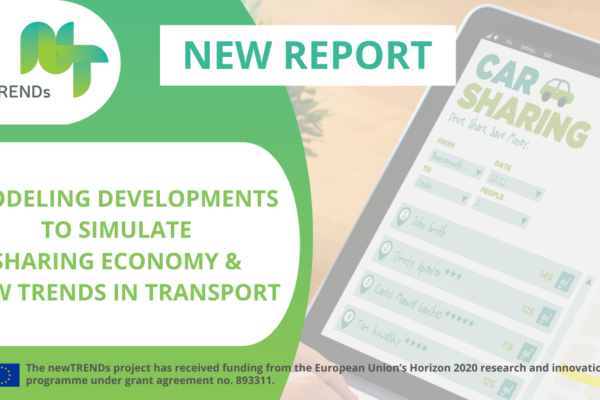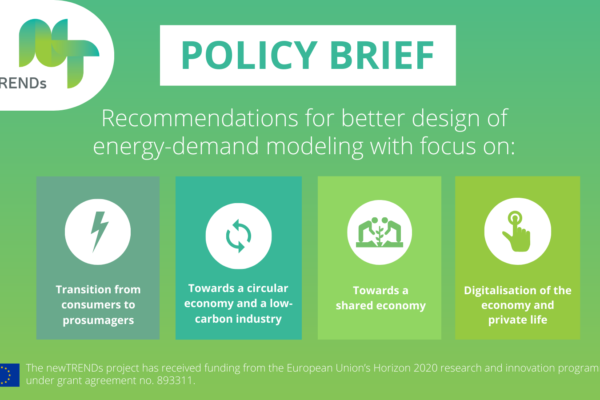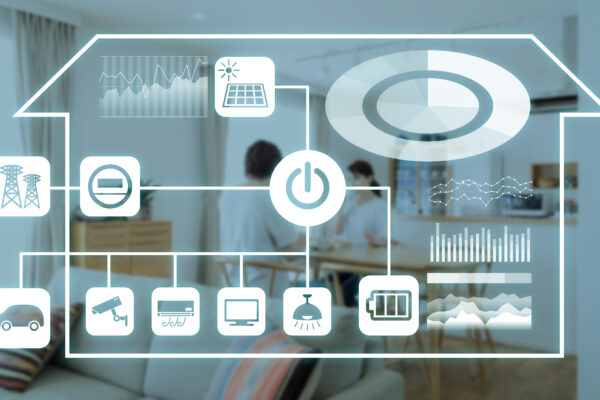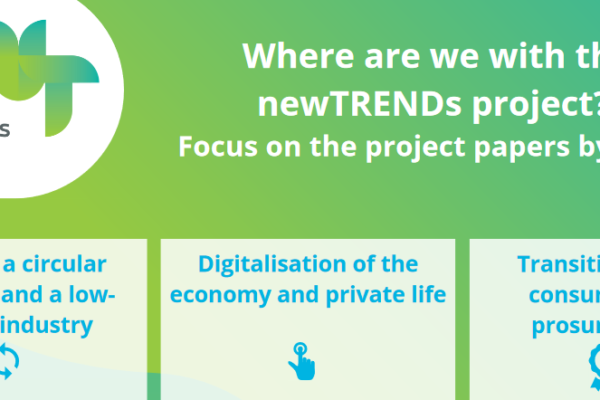The trends of prosumaging households and energy communities demand the analysis of relevant business models and policy instruments, and motivate the newTRENDs project. In this report, partners introduce the modeling... read more →
This report offers the rational and detailed mathematical description of the prosumager model developed as an individual module that can selectively operate in cooperation with the PRIMES model. Along with... read more →
This report focuses on advancing existing modeling approaches and, in particular, towards incorporating shared mobility in transport, seen as an environmentally-sustainable alternative to car ownership and, therefore, a shift towards... read more →
The newTRENDs project seeks to recognize and model the influence of New Societal Trends on energy demand, and hence develop scenarios of their future development. Emerging New Societal Trends will... read more →
The newTRENDs partners have developed FLEX, an open-source modeling suite for the operation and energy consumption of households and energy communities. It is now freely available to all. How will... read more →
newTRENDs was glad to contribute to the European Climate and Energy Modelling Platform conference (ECEMP) with the project team chairing a newTRENDs session.There are several options to decarbonise the buildings... read more →
Join our workshops, a series of sessions dedicated to the modeling in the four newTRENDs focus studies. In each session, the model advancements will be presented, and the challenges and knowledge... read more →
newTRENDs is entering a new phase of its research activities. Before we issue many new reports and policy briefs in the coming weeks, have a look at the first ones... read more →
The digitization of the economy and private lives (including new and smarter ways for private households to consume, produce and manage their own energy), the circular economy, the creation of... read more →
The eceee Summer Study was back early June 2022 with an in-presence event. What a pleasure for the newTRENDS team to present insights into two panel sessions* and an “informal”... read more →









